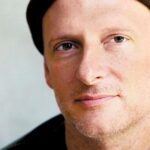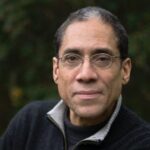Don’t take our word for it
Try it out and you’ll see how easy it is
As a non-fiction photographer, I strive to understand what I’m documenting and present the images, words and context that help clarify and deepen my images with as much veracity as possible. Even prior to the proliferation of AI, facts and truth have been called into question, mainly by authoritarian and non-democratic forces. Now with AI, it’s imperative that we strive to maintain our accuracy and push back on the forces that manipulate truth and sow fear into the masses only for political power and influence.
A camera is an ethical tool which helps guarantee credibility because the photographer is an observer. AI images are just numbers in a box that have no conscience and no morality. But they look like a photographer “took them”. Synthetic images are not any more real than fiction is fact. Even if fiction sounds like fact, it is not. That’s why books are identified as fiction or non-fiction. The real danger with AI begins when the public can no longer believe documentation because they can’t see the difference. When lies become truths, truths become lies. Our job is to hold those in power accountable, so without the integrity of the press, the future of democracy is threatened.
I use the language of images, along with that of words, to document the world I’ve had the privilege to enter and participate in through my questions, my observations and my camera. As an honest photojournalist, I don’t extrapolate or lie with words, and I don’t do that with images, either.
Today, artificial intelligence has given us the possibility to synthetise ‘photographic truth’ relying on (post) photographic data stretching out from images formerly known as ‘straight’ to ‘improved’ and now also – and increasingly – synthetic. All stored in the ‘cloud’, pretending to be collective memory while in reality shaped by commercially operated algorithms: systems locked up in black boxes virtually no one has access to.
As a documentary photographer who lives in a country where the truth is a battlefield I fear that manipulation of everything will become so much more easier with AI that we won’t be able to hold those in power accountable for their actions.
As documentary image makers and as humans, we feel emotions. This is crucial for our images to transcend the algorithms. Artificial intelligence is far away from feeling.
No one should be able to to tell the story of who you are better than you. I believe that one of the downfalls of AI is its ability to further hijack and/or silence the voices of marginalized individuals whose stories have historically been told for them instead of by them.
This new and dangerous world of digital distortion and AI will crush our powerful witness in documentary photography and the truth that so many of us have strived to observe through our photographs.
Still and moving images purporting to be photographic or camera-led eyewitness proof of actual unfolding news events or of non-fiction documentary issues-—whether deployed in newspapers, on TV stations, or on social media—must remain contextualized and easily distinguishable from images which are fabricated by AI.
In order to safeguard the long-term credibility of the photographic record there needs to be a robust industry-wide set of standards.
Our mission as photojournalists is to show the world as we experience it and see it. We strive to honestly represent the people we meet and the places we visit in our photos. Artificial intelligence cannot do this.
I became a photojournalist because I believed that photos and moving images I saw in newspapers and on TV stations showed me the world as I had not seen it. I continue to make what we once called “straight photos”—no edits or changes of images that added, removed, or distorted content in the frame— because I believe in their value and their power.
Crocals Elements
You might want to consider
– Counters
– Buttons
– Team
– Carousel
– Row Backgrounds
– Pricing Tables
– Gallery
– Icon Boxes
– Fancy Boxes
– Image Text
– Media Box
– Progress Bars


